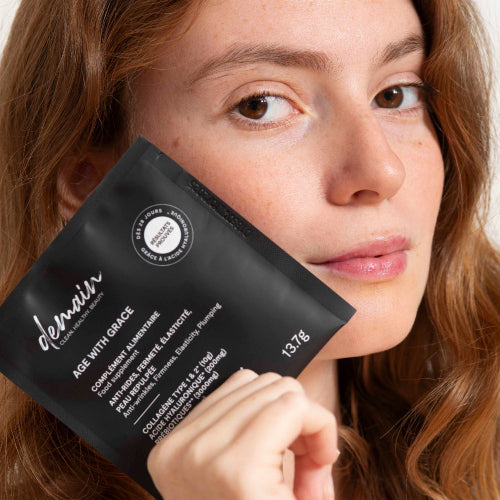To maintain good health, a diet rich in probiotics is recommended. Some will turn to food supplements such as DEMAIN®'s highly enriched with probiotics.
However, it's important to note that you can also incorporate certain probiotic-rich foods into your diet, such as fermented foods. In this article, we will specifically focus on kefir
WHEN DOES FOOD FERMENTATION DATE?
This is not from today! The first fermentations date back to the history of humanity! Even if they were initially the result of culinary errors, seeing how they allowed food to be preserved or made more digestible, man quickly sought to reproduce the phenomenon. Thus were born wine, beer, sauerkraut, but also cheese and… kefir . Almost all peoples have developed fermentation processes in one form or another.
Allowing food to be preserved, this method has thus saved populations from starvation during bad seasons. Each country has at least one strong identity fermented food. In France, baguette, wine and cheese are 3 fermented foods.
WHAT IS FERMENTATION AND HOW IS IT GOOD FOR YOUR HEALTH?
Fermentation is the transformation of sugars present in food or drink into acids, gases or alcohol by the intermediary of micro-organisms.
The benefits of a fermented diet (rich in probiotics) are numerous: easier digestion, source of vitamins, increased production of enzymes, stimulation of the intestinal flora...
Thanks to these probiotics, it's the end of bloating, abdominal pain, food intolerances or allergies, fungal infections, skin problems, hormonal disorders, etc.
Indeed, the good bacteria that make up fermented foods are responsible for our good digestion. They break down food, break it down into molecules and make it easier for the body to assimilate. They also manufacture vitamins, break down toxins, or drugs and even strengthen the immune system by protecting the intestinal mucosa from bad bacteria.

WHAT FERMENTED FOODS ARE NATURALLY RICH IN PROBIOTICS?
Here you will find the list of foods naturally rich in probiotics:
Yogurts and fermented milks: buttermilk , Greek yogurts, etc.
Kefir, Kombucha...
Soy derivatives: shoyu , tamari , miso, tempeh…
raw sauerkraut
Olives, gherkins, pickles…
Unpasteurized beers
Marbled cheeses (blue, roquefort, fourme…) and cheeses with a rind (camembert, brie, Sainte Maure…)
Beer yeast
sourdough bread
The good news is that it is possible to make your own fermented drinks very simply!
MAKE YOUR OWN KEFIR (OR FERMENTED DRINK) , NATURALLY RICH IN PROBIOTICS
Indeed, it is very simple to make your own fermented drink. Let's start with one of the simplest: fruit kefir.

PRACTICAL ADVICE
Level of difficulty: very easy
Preparation time: 10min
Fermentation time: 1-2 days
Prerequisites: get fruit Kefir grains (go to your organic store or online) .
INGREDIENTS
- 20g fruit kefir grains
- 40g organic blond sugar
- 1 organic dried fig, cut in 2
- 2 slices of organic lemon
- 1 liter spring or filtered water
INSTRUCTIONS
- Preparation of kefir
Place the beans in a clean jar
Add the sugar, the lemon slices, the cut fig
Add the water, mixing everything with a spoon .
Close the airtight lid ( or cover with a cloth and a rubber band)
If you use a jar with a lid, degas every 12 to 24 hours to avoid overpressure.
- Fermentation
Leave the jar to ferment away from light and in a warm place (from 22 to 26°) for 24 to 48h .
24 hours : it will be sweeter and have a laxative effect
48h : more you will leave your kefir ferment longer, the drier it is, the less sweet it will be
Note that kefir is slightly alcoholic . Beware of children and abuse!
Taste regularly using a metal straw (own !) to choose the level of fermentation that suits you best (and educate your palate!) . It will be ready when it tastes like not too sweet lemonade.
Then remove the lemon, the fig pieces and filter the kefir to collect the kefir grains that you can store and use for another recipe.
Consume at room temperature, or refrigerate.
- 2nd fermentation
If you find that your kefir lack of sparkling, you can start a second fermentation at room temperature 24 hours additional, remembering to degas to avoid any overpressure.
- Storage of kefir
To keep the kefir grains for another use, cover them with water with the same amount of sugar and put them in the fridge. Change the water every 3 weeks.











